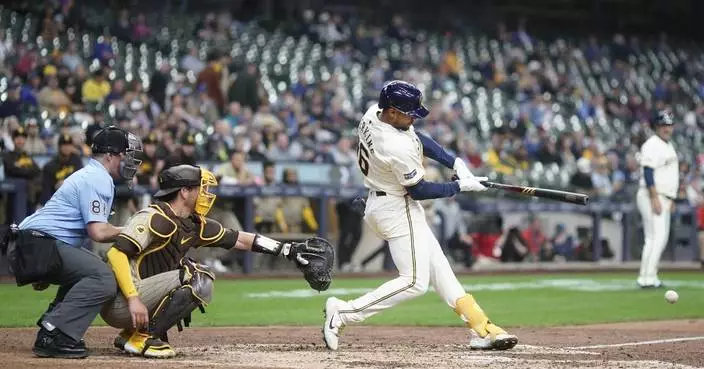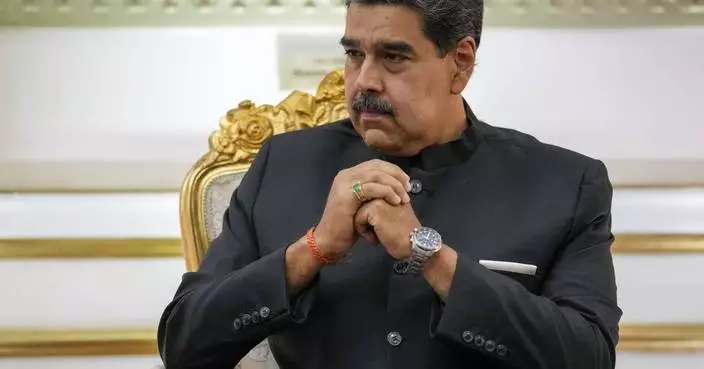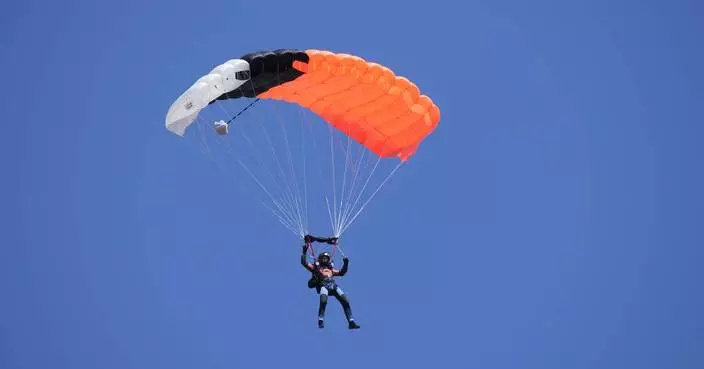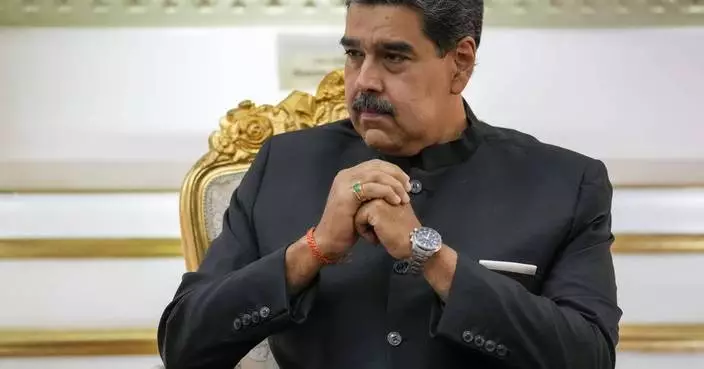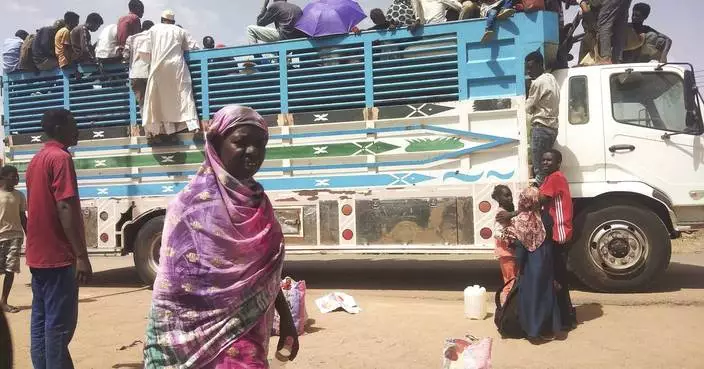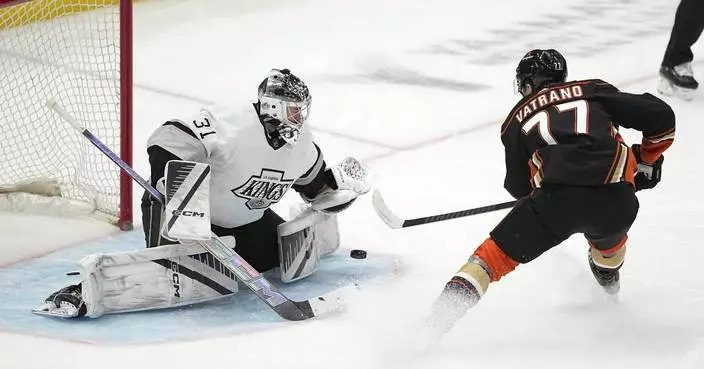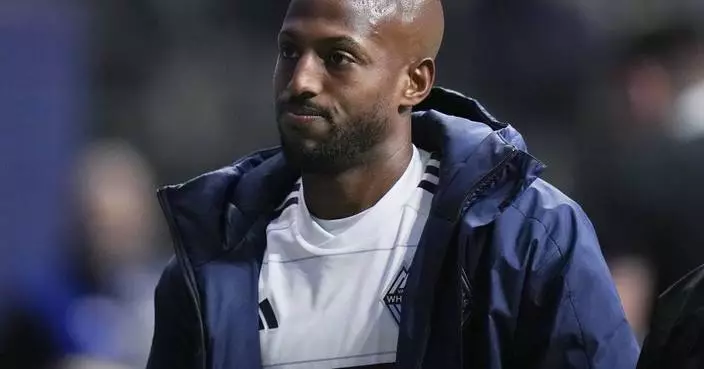A powerful ally of Venezuelan President Nicolás Maduro on Monday denied any type of armed threats against U.S.-backed opposition leader Juan Guaidó as shown in a widely circulated photograph.
The image taken by a member of Guaidó's press team depicts an armed man in street clothes and a motorcycle helmet pointing a pistol at a group of people led by Guaidó during a Saturday street rally.
Opposition leaders marching with Guaidó said that socialist hardliners loyal to Maduro also opened fire to intimidate opposition supporters at the event in the central city of Barquisimeto, injuring a 16-year-old boy who was shot in the leg.
However, Maduro ally and socialist party boss Diosdado Cabello in a news conference Monday called the photo a “lie” distributed by the opposition in an attempt to trick Guaidó followers into thinking his life is in danger.
“He're an alleged gunman, an armed man,” Cabello said, holding up a copy of the photo. “Everyone is calm... and Guaidó keeps on talking.”
Cabello said that the boy was injured a long distance from Guaidó, dismissing it as an unrelated incident.
According to opposition leaders interviewed by The Associated Press on Saturday, about 200 armed civilians and government security forces ambushed marchers led by Guaidó. They said several others were roughed up as the Maduro loyalists harassed participants.
The AP was not present at the rally so was unable to verify the account made by either side. The photo of the gunman aiming at Guaido was provided to the AP by the opposition leader's team.
The confusing incident is believed to be the first time pro-government vigilantes known as colectivos have aimed a weapon at Guaidó, who the U.S. and more than 50 other countries recognize as Venezuela's rightful leader following Maduro's re-election in 2018 in a race the opposition says was marred by irregularities.
It is was the first public trip Guaidó has taken outside the capital of Caracas since returning from an international tour to rally support, including a White House meeting with President Donald Trump, who invited Guaidó as a special guest to his annual State of the Union address.
The incident was widely condemned in the international community by the European Union, the Organization of American States and the Lima Group, which integrates a dozen countries in the region to find a way out of the Venezuelan crisis.
Guaidó has called for a demonstration on March 10, when the opposition will attempt to retake control of their legislative building in the center of Caracas. Armed civilians and security forces have forcefully blocked opposition lawmakers from entering the building since January.
Also Monday, Venezuelan authorities said that they arrested two managers of the state-run oil firm PDVSA, accused of providing internal information to the U.S.
It follows a recent announcement by Maduro to restructure PDVSA after stiff U.S. sanctions against a Russian state-controlled brokerage that has helped the Venezuelan government skirt an American oil embargo and enabled Maduro to keep his grip on power.
The two men arrested are Alfredo Marcial Chirinos Azuaje, special operations manager, and Aryenis Torrealba, general manager of crude operations. They're accused of providing the U.S. with “strategic, sensitive and confidential information.”
NCAA athletes will be immediately eligible to play no matter how many times they transfer — as long as they meet academic requirements — after the association fast-tracked legislation Wednesday to fall in line with a recent court order.
The NCAA announced the Division I Council's decision becomes official Thursday when its meeting adjourns. The change still needs to be ratified by the DI Board next week, but that is expected.
The new rules will go into effect immediately, though in reality they have already been enacted through a lawsuit filed late last year.
Transfer windows, which are sport-specific, remain in place and require undergraduate athletes to enter their names into the portal at certain times to be immediately eligible at a new school. Graduate students can already transfer multiple times and enter the portal outside the windows while maintaining immediate eligibility.
A coalition of state attorneys general late last year sued the NCAA, challenging rules that forced athletes that wanted to transfer multiple-times as undergraduates to sit out a season with their new school.
A judge in West Virginia granted the plaintiffs a temporary injunction, lifting requirements for multiple-time transfers to request a waiver from the NCAA to be immediately eligible to compete.
The NCAA quickly requested the injunction be kept in place throughout the remaining school year to clear up any ambiguity for athletes and schools. The association has had to issue guidance to its members to clarify what that means for next season. Now the rules match the court ruling.
By eliminating the so-called year-in-residence for transfers, an athlete must be academically eligible at the previous school and not subject to any disciplinary suspension or dismissal to compete immediately at a new school. Transferring athletes must also meet progress-toward-degree requirements before competing.
“We hope that this practical approach to transfer eligibility requirements will encourage student-athletes to make well-informed decisions about transferring and the impacts such a move could have on their ability to graduate on time in their degree of choice, particularly as it relates to transferable credits,” Florida deputy athletic director and council chairwoman Lynda Tealer said in a statement.
The board will ask the committee on academics to explore creating a new metric — similar to the NCAA's Academic Progress Rating — that would hold schools accountable for graduating the transfers they accept.
The portal windows are currently open for both football and basketball, and the lifting of restrictions on multiple-time transfers has led to an uptick in athletes looking to switch schools.
In a notable move that would not have been permissible without a waiver under previous rules, Alabama offensive tackle Kadyn Proctor entered the portal in January after Crimson Tide coach Nick Saban retired, committed to Iowa, but then changed his mind during the spring and has reentered the portal with the intention to reenroll at Alabama.
The DI Council also moved forward on legislation that would allow schools to be more actively involved in securing sponsorship deals for their athletes. Schools could still not directly pay athletes, but they could facilitate NIL opportunities between third parties and athletes.
AP Sports Writer John Raby in Charleston, West Virginia, contributed to this report.
Follow Ralph D. Russo at https://twitter.com/ralphDrussoAP and listen at http://www.appodcasts.com
AP college football: https://apnews.com/hub/college-football
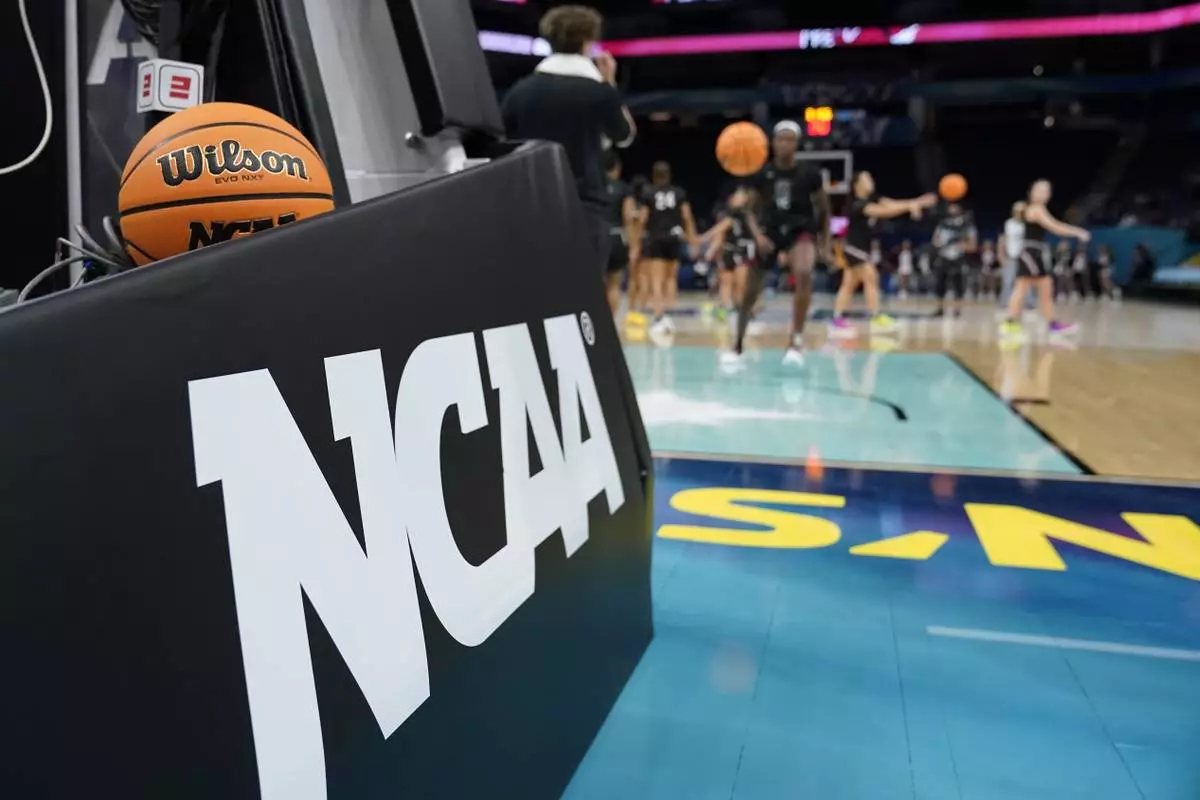
FILE - South Carolina players work out during a practice at the Women's Final Four NCAA college college basketball tournament, Saturday, April 2, 2022, in Minneapolis. NCAA athletes will be immediately eligible to play no matter how many times they transfer — as long as they meet academic requirements — after the association fast-tracked legislation Wednesday, April 17, 2024, to fall in line with a recent court order. (AP Photo/Eric Gay, File)
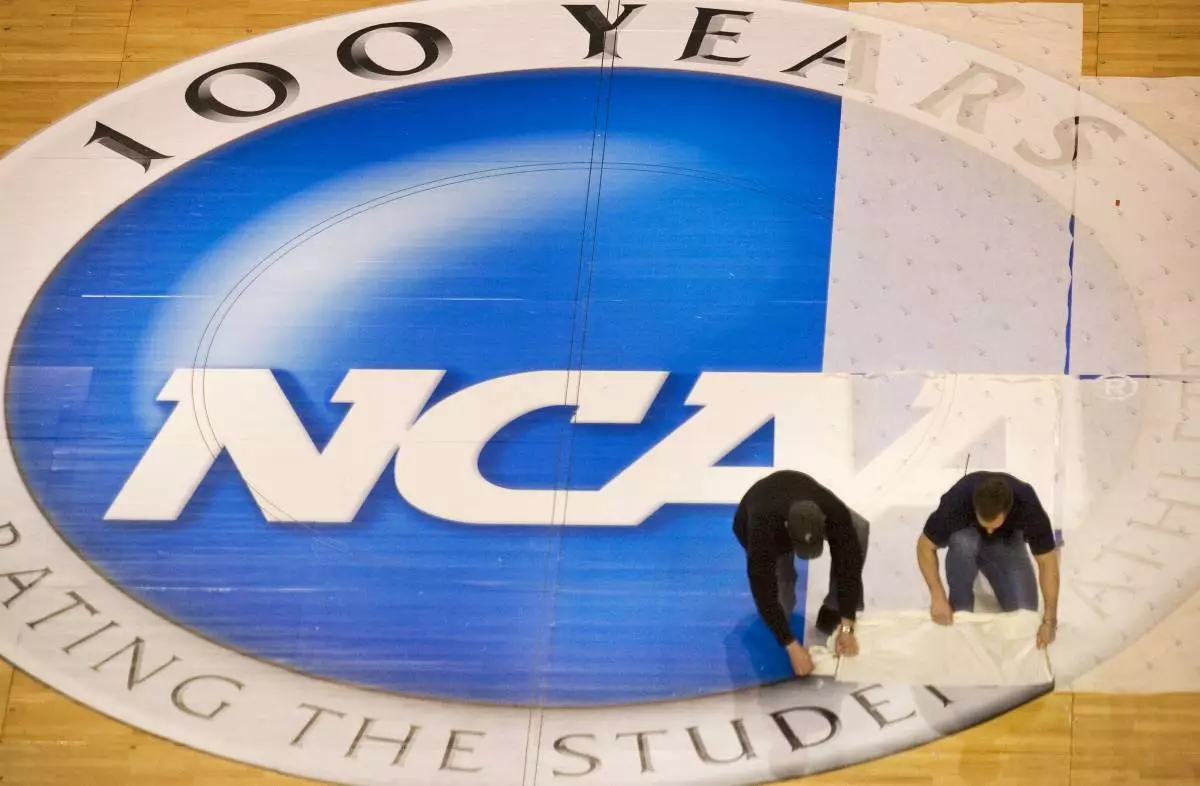
FILE - Wachovia Center operations manager Jim McDonald, left, and carpenter foreman Tim Allen remove the protective film covering the NCAA logo at mid-court on the center's basketball court, Wednesday, March 15, 2006, in Philadelphia. NCAA athletes will be immediately eligible to play no matter how many times they transfer — as long as they meet academic requirements — after the association fast-tracked legislation Wednesday, April 17, 2024, to fall in line with a recent court order. (Ed Hille/The Philadelphia Inquirer via AP, FIie)





